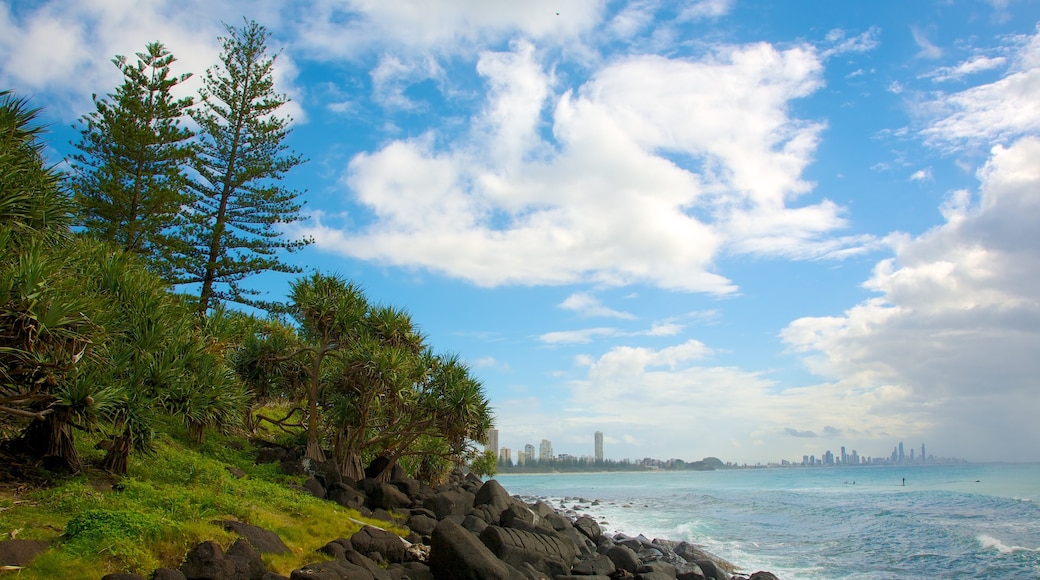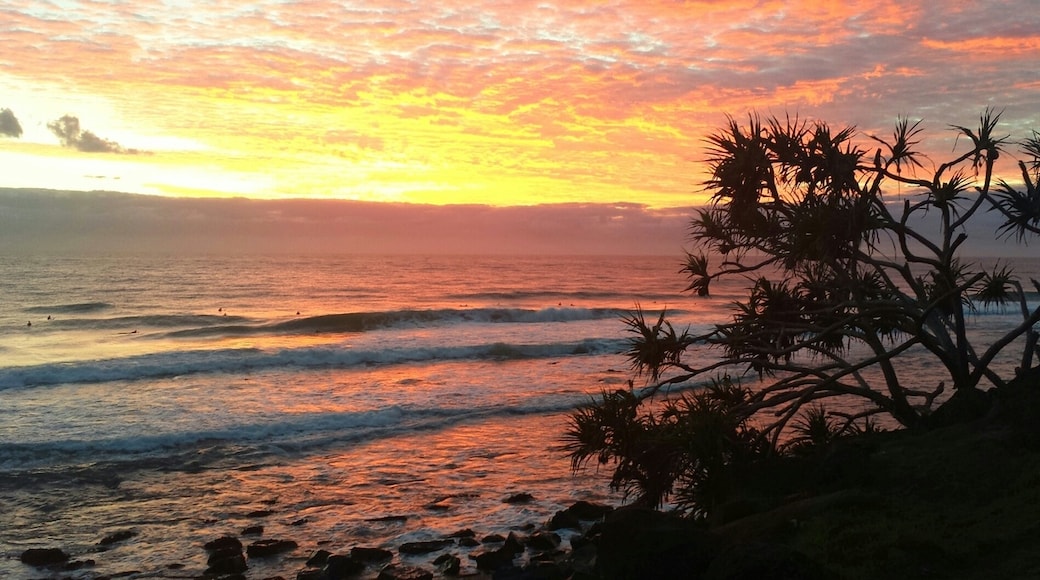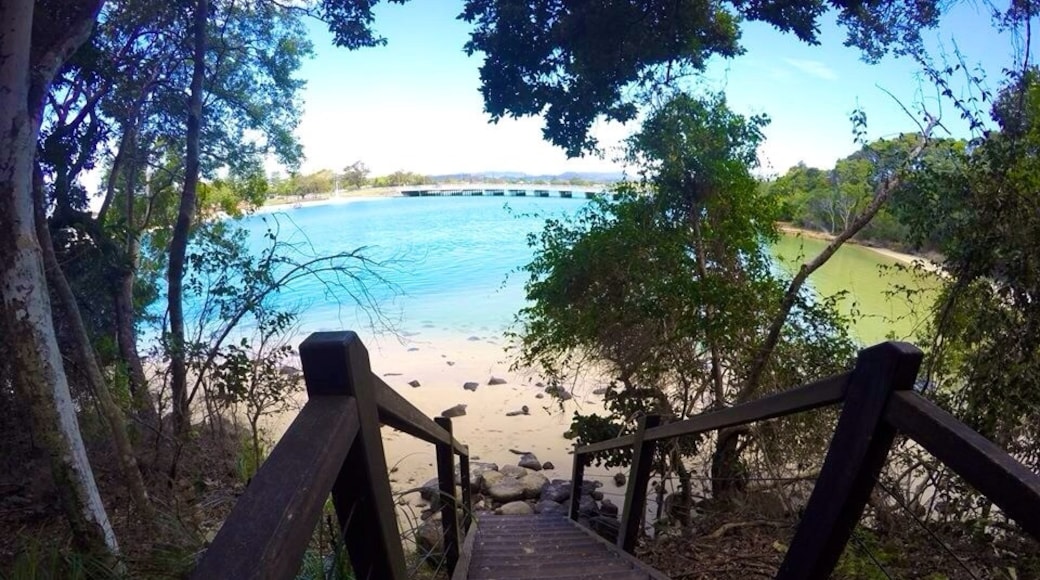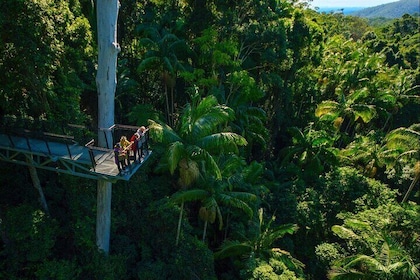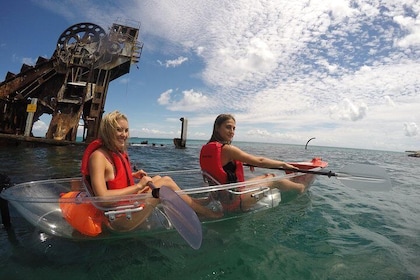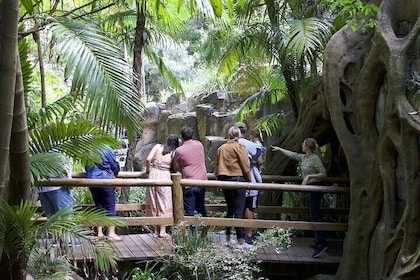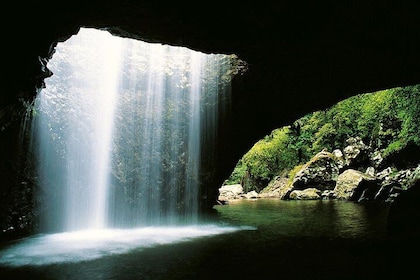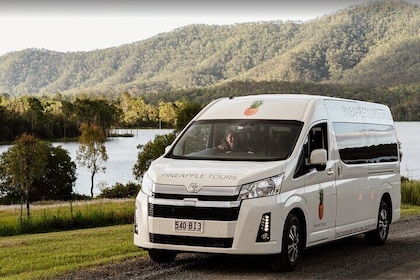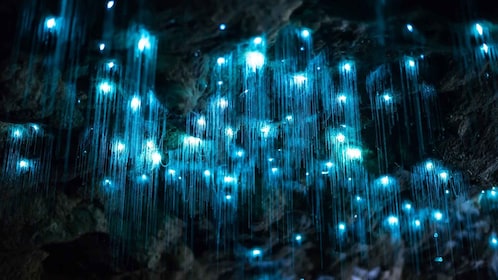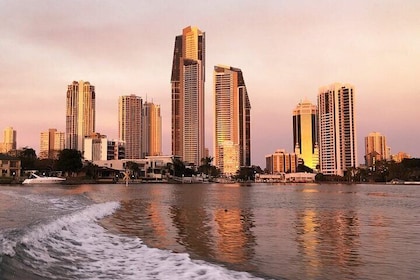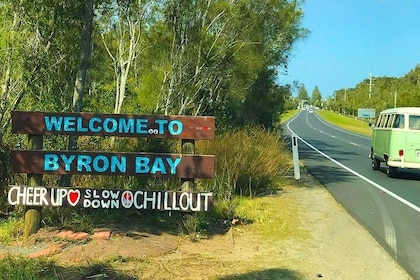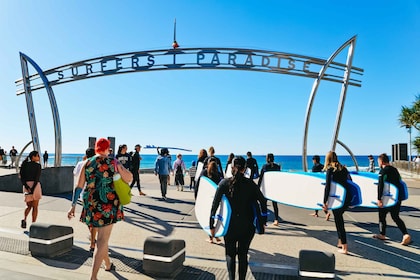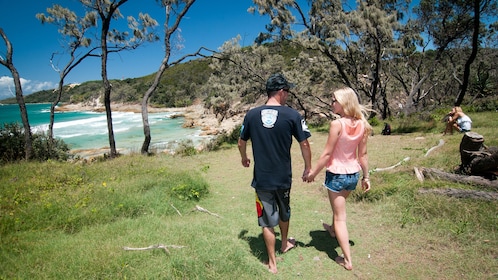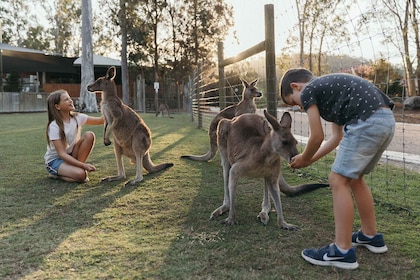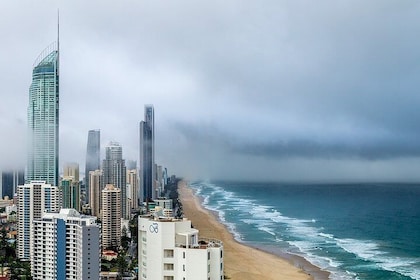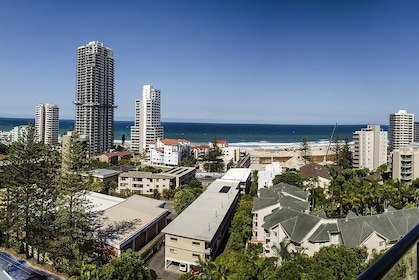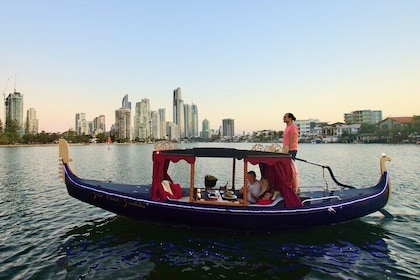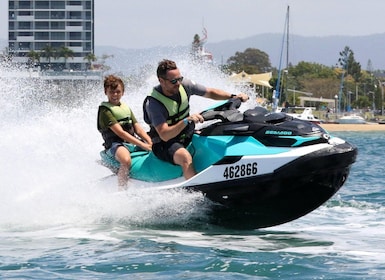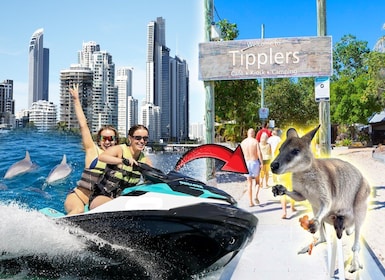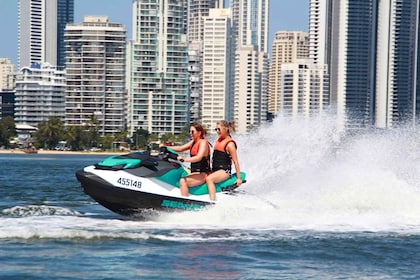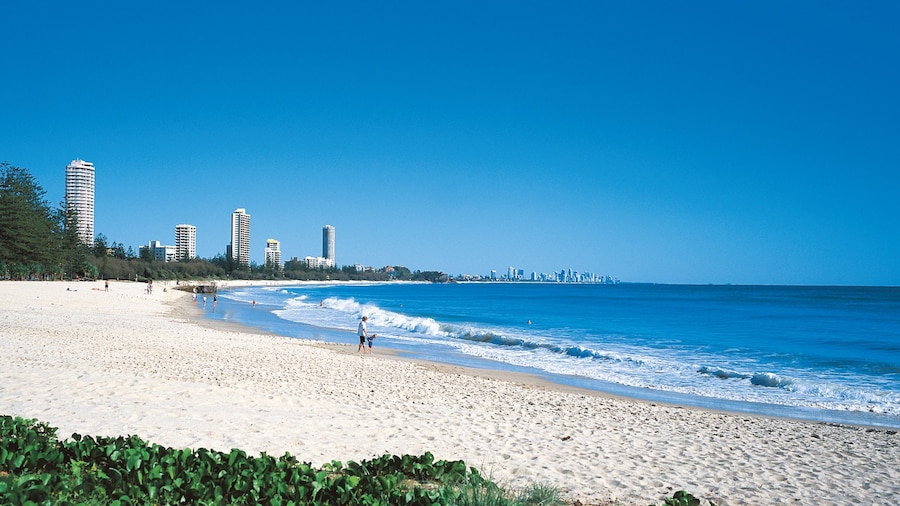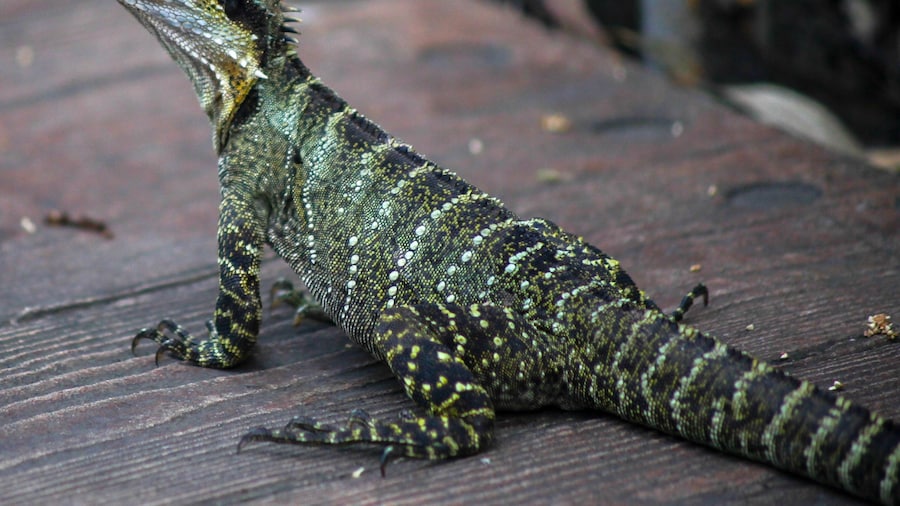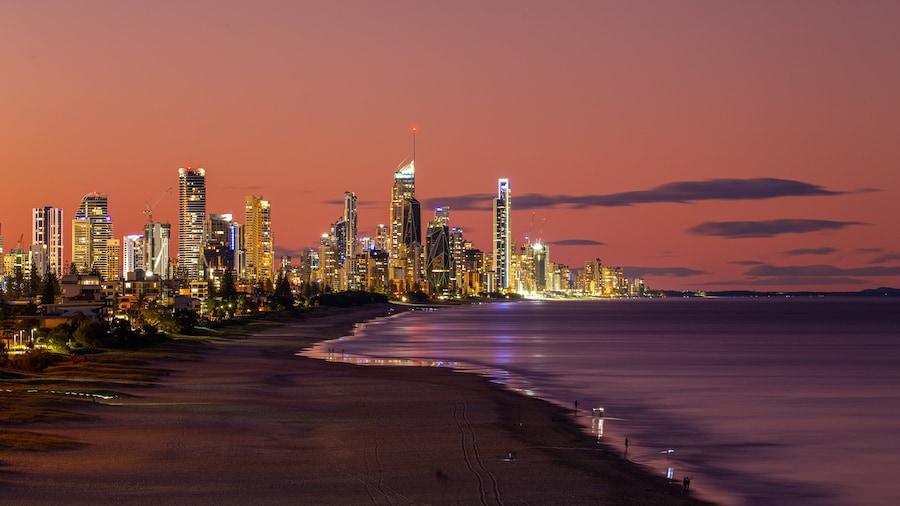This tiny reserve of natural headland in the heart of the bustling Gold Coast offers coastal rainforest walks, panoramic views and a chance to spot whales and dolphins.
At Burleigh Head National Park, ancient volcanic columns and rainforest meet the sea, providing an important habitat for rare flora and fauna. Explore the rainforest or follow the ocean view track to see one of Australia’s most famous surfing point breaks on the northern side.
Burleigh Head National Park is the area’s last coastal slice of natural wilderness, spared from urban development due to its geological significance. Over 20 million years ago, molten lava from numerous eruptions in the Mount Warning area spread in all directions. Some flows reached the coastline at Burleigh headland and Point Danger.
The cooled lava coupled with erosion has given the coastline a rough and untouched look. The cool climate and beautiful views make Burleigh Head National Park the perfect place to walk or hike. Wander through the park’s 67 acres (27 hectares) of rainforest, eucalypt forests, pandanus groves, tussock grassland, coastal heath, mangroves, creeks, rocky foreshore and beaches.
Stop by the information centre at the entrance for details about the two marked walking tracks. The Rainforest circuit climbs to about 88 metres (289 feet) above sea level and provides a great chance to spot some wildlife. Look for koalas, sea eagles, brahminy kites, echidnas, possums, rainbow lorikeets and other endemic species.
The park’s other walking track is the Oceanview track that leads around the headland. Stop at Tumgun lookout to look for migrating humpback whales in winter and spring or pods of dolphins year-round. Walk around the rocky headland from Tallebudgera Creek and admire the tumbled masses of basalt columns. Relax by the creek at Echo Beach or picnic on the Burleigh foreshore.
Burleigh Head National Park is located in the suburb of Burleigh Heads on the Gold Coast. The headland is about 90 kilometres (56 miles) south of Brisbane and parking is available at the end of Goodwin Terrace. Parts of the park are accessible by wheelchair and stroller. Camping is not permitted within the park.
